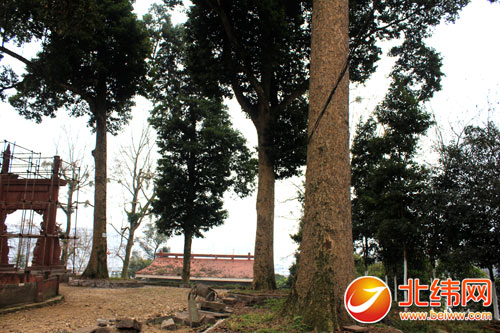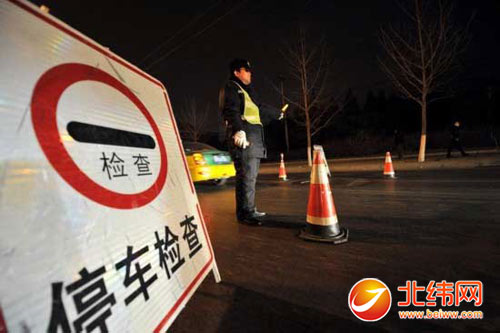Koreans becoming more prone to rage
2024-09-23 07:27:24 [关于我们] 来源:Anhui News
Kim Myung-hun (not his real name), a 29-year-old worker at one of South Korea’s biggest home shopping channels, was stunned last month when his female colleague was threatened to be killed by one of her customers over the phone.
“It was late at night, and the customer was drunk. He wanted to exchange a purchase,” Kim said.
“When my colleague said she could not help him unless he told her his name, he all of a sudden started screaming and cursing. He eventually said, ‘I know where you are right now, and I’m going to kill you.’ We ended up calling the police.”
According to Kim, customer calls that involve cursing, screaming and threats have increased by about three times at his company in the last two years. He did not give his real name as talking to the media about work is prohibited by his employer.

Between 2011 and 2014, impulsive crimes made up more than 40 percent of all violent crimes in the country, raising concerns about public mental health and safety.
According to research last year by the Korean Association of Psychiatric Practitioners, about 50 percent of Korean adults have experienced symptoms of impulse control disorder at least once, and about 10 percent of them needed treatment.
In 2011, a man in his 40s, whose wife had left him after having an extra-marital affair, murdered a female pedestrian. The man told the police that he had killed her because it made him angry that the victim’s appearance resembled that of his wife who had run away from home years ago.
Detective Kwon Il-yong from the National Police Agency said the case belongs to the kind of violence that is caused by accumulated despair, social isolation or helplessness. Such cases mostly target random individuals -- such as strangers on the street or those working in customer service -- and are therefore more dangerous and unpredictable.
Such anger-related crimes can take the form of violent attacks against neighbors over noise complaints and accidents involving road rage.
“We also found that many offenders of impulsive violent crimes tend to have obsessive behaviors as well as anxiety disorders. Some of them also have narcissistic tendencies,” the detective said.
A 27-year-old hotelier, who declined to be named, said she has witnessed countless narcissistic individuals among customers who complain violently and make “absurd” demands.
For instance, a hotel guest, a woman in her 20s, once asked her to let three of her friends use the hotel’s swimming pool for free. When the hotelier told her that this was not allowed, the guest started crying hysterically and screaming loudly. The woman shouted at her in the lobby, saying, “Why are you trying to ruin my birthday? Who do you think you are?”
An Hui-jean, a professional counselor and psychologist, said impulse control disorder and addiction share a lot of similarities. “Both of the conditions occur when you lose your ability to control,” she said. “When you fail to control your urge to go shopping all the time, you become a shopaholic. When you lose your ability to control your anger, you end up with an anger disorder.”
The psychologist said those with impulse control disorder are likely to have been raised by parents who did not allow them to freely voice their objections and negative feelings at home.
“When a child’s negative emotions are not accepted and acknowledged by the parents, he or she starts to believe that in order to make it clear that they are unhappy with something, they have to be vocal and loud about it. The kid doesn’t learn how to complain or disagree with someone without getting angry. And this is something many adult Koreans don’t know how to do.”
Culture critic Lee Moon-won said the high prevalence rate of impulse control disorder is partly linked to the nation’s hierarchal culture in which people engage in relationships at work and in families in strict accordance to one’s age, power and position.
“Since you can’t directly complain to your boss or someone who is older in your family, you vent your anger on someone you don’t know, or someone who you think can’t fight back,” Moon said. “That’s why those in the service sector are the most vulnerable to verbal abuse, because many Koreans think customers are the boss-equivalent of those who greet them at shops, restaurants and other businesses.”
Psychiatrist Ahn Yong-min from Seoul National University Hospital in Seoul said one’s failure to resist an urge to express anger should be understood as more than just a selfish and violent act.
“The person with the condition is more likely feeling a lot of negative emotions, such as sadness and anxiety,” he said. “Expressing anger is their way of escaping such negative feelings inside. The key is to tackle such negative feelings, and encourage those who have anger issues to seek professional help, as the mental condition can easily turn into violent behaviors.”
South Korea has a special term for the symptoms of suppressed anger that can eventually lead to physical discomfort or illness: “hwabyeong.” The condition is known to arise when people are unable to confront anger stemming from situations which they perceive to be unjust. Symptoms including tightness in the chest, insomnia and chest pains.
Urban Dictionary, an American satirical crowdsourced online dictionary of slang words, describes such traits among Koreans as “kimchi rage.”
The website defines this as “a mental state typically exhibited by a Korean who is extremely displeased. This condition is signified by gratuitous violence accompanied by psychotic shrieking. Surrounding people and or objects are usually left injured or damaged.”
Culture critic Lee said hwabyeong has its roots in the feudal Korean kingdom that lasted from 1392 to 1897, as its strict class hierarchy and patriarchy offered no social mobility.
“For those who belonged to the lower caste, there really was no way for them to fight injustice if they were abused by those who belonged to the higher class,” he said. “The only way was to just endure it. And we also have to remind ourselves that the slavery system from the Joseon kingdom did not completely disappear in Korea until the 1940s.”
It seems as if present-day Korea is beginning to resemble the feudal kingdom when it comes to social mobility. According to data by Statistics Korea, only 20 percent of the Korean population feels that achieving a higher socioeconomic status is possible by one’s own efforts.
The 27-year-old hotelier said dealing with angry guests often gets her riled.
“I feel like it’s an injustice to myself,” she said. “I always have to say sorry even when it’s the guest who is making an unreasonable request or complaint. But I’ve been told to be thankful because at least I have a job when there are so many young people who can’t even pay the bills.”
By Claire Lee (dyc@heraldcorp.com)
“It was late at night, and the customer was drunk. He wanted to exchange a purchase,” Kim said.
“When my colleague said she could not help him unless he told her his name, he all of a sudden started screaming and cursing. He eventually said, ‘I know where you are right now, and I’m going to kill you.’ We ended up calling the police.”
According to Kim, customer calls that involve cursing, screaming and threats have increased by about three times at his company in the last two years. He did not give his real name as talking to the media about work is prohibited by his employer.

Between 2011 and 2014, impulsive crimes made up more than 40 percent of all violent crimes in the country, raising concerns about public mental health and safety.
According to research last year by the Korean Association of Psychiatric Practitioners, about 50 percent of Korean adults have experienced symptoms of impulse control disorder at least once, and about 10 percent of them needed treatment.
In 2011, a man in his 40s, whose wife had left him after having an extra-marital affair, murdered a female pedestrian. The man told the police that he had killed her because it made him angry that the victim’s appearance resembled that of his wife who had run away from home years ago.
Detective Kwon Il-yong from the National Police Agency said the case belongs to the kind of violence that is caused by accumulated despair, social isolation or helplessness. Such cases mostly target random individuals -- such as strangers on the street or those working in customer service -- and are therefore more dangerous and unpredictable.
Such anger-related crimes can take the form of violent attacks against neighbors over noise complaints and accidents involving road rage.
“We also found that many offenders of impulsive violent crimes tend to have obsessive behaviors as well as anxiety disorders. Some of them also have narcissistic tendencies,” the detective said.
A 27-year-old hotelier, who declined to be named, said she has witnessed countless narcissistic individuals among customers who complain violently and make “absurd” demands.
For instance, a hotel guest, a woman in her 20s, once asked her to let three of her friends use the hotel’s swimming pool for free. When the hotelier told her that this was not allowed, the guest started crying hysterically and screaming loudly. The woman shouted at her in the lobby, saying, “Why are you trying to ruin my birthday? Who do you think you are?”
An Hui-jean, a professional counselor and psychologist, said impulse control disorder and addiction share a lot of similarities. “Both of the conditions occur when you lose your ability to control,” she said. “When you fail to control your urge to go shopping all the time, you become a shopaholic. When you lose your ability to control your anger, you end up with an anger disorder.”
The psychologist said those with impulse control disorder are likely to have been raised by parents who did not allow them to freely voice their objections and negative feelings at home.
“When a child’s negative emotions are not accepted and acknowledged by the parents, he or she starts to believe that in order to make it clear that they are unhappy with something, they have to be vocal and loud about it. The kid doesn’t learn how to complain or disagree with someone without getting angry. And this is something many adult Koreans don’t know how to do.”
Culture critic Lee Moon-won said the high prevalence rate of impulse control disorder is partly linked to the nation’s hierarchal culture in which people engage in relationships at work and in families in strict accordance to one’s age, power and position.
“Since you can’t directly complain to your boss or someone who is older in your family, you vent your anger on someone you don’t know, or someone who you think can’t fight back,” Moon said. “That’s why those in the service sector are the most vulnerable to verbal abuse, because many Koreans think customers are the boss-equivalent of those who greet them at shops, restaurants and other businesses.”
Psychiatrist Ahn Yong-min from Seoul National University Hospital in Seoul said one’s failure to resist an urge to express anger should be understood as more than just a selfish and violent act.
“The person with the condition is more likely feeling a lot of negative emotions, such as sadness and anxiety,” he said. “Expressing anger is their way of escaping such negative feelings inside. The key is to tackle such negative feelings, and encourage those who have anger issues to seek professional help, as the mental condition can easily turn into violent behaviors.”
South Korea has a special term for the symptoms of suppressed anger that can eventually lead to physical discomfort or illness: “hwabyeong.” The condition is known to arise when people are unable to confront anger stemming from situations which they perceive to be unjust. Symptoms including tightness in the chest, insomnia and chest pains.
Urban Dictionary, an American satirical crowdsourced online dictionary of slang words, describes such traits among Koreans as “kimchi rage.”
The website defines this as “a mental state typically exhibited by a Korean who is extremely displeased. This condition is signified by gratuitous violence accompanied by psychotic shrieking. Surrounding people and or objects are usually left injured or damaged.”
Culture critic Lee said hwabyeong has its roots in the feudal Korean kingdom that lasted from 1392 to 1897, as its strict class hierarchy and patriarchy offered no social mobility.
“For those who belonged to the lower caste, there really was no way for them to fight injustice if they were abused by those who belonged to the higher class,” he said. “The only way was to just endure it. And we also have to remind ourselves that the slavery system from the Joseon kingdom did not completely disappear in Korea until the 1940s.”
It seems as if present-day Korea is beginning to resemble the feudal kingdom when it comes to social mobility. According to data by Statistics Korea, only 20 percent of the Korean population feels that achieving a higher socioeconomic status is possible by one’s own efforts.
The 27-year-old hotelier said dealing with angry guests often gets her riled.
“I feel like it’s an injustice to myself,” she said. “I always have to say sorry even when it’s the guest who is making an unreasonable request or complaint. But I’ve been told to be thankful because at least I have a job when there are so many young people who can’t even pay the bills.”
By Claire Lee (dyc@heraldcorp.com)
(责任编辑:新闻中心)
推荐文章
-
21 Caves That Offer Otherworldly Experiences
 Millions of caves can be found worldwide, many of which are home to flora and fauna that are uniquel
...[详细]
Millions of caves can be found worldwide, many of which are home to flora and fauna that are uniquel
...[详细]
-
 雅安日报讯10月31日,我市红色文化旅游研讨会召开,研究和探讨如何进一步做大做强我市红色文化旅游产业。市委常委、组织部长赖荣出席会议并讲话,全市各级文化旅游部门相关负责人及我市红色文化旅游研讨会征文活
...[详细]
雅安日报讯10月31日,我市红色文化旅游研讨会召开,研究和探讨如何进一步做大做强我市红色文化旅游产业。市委常委、组织部长赖荣出席会议并讲话,全市各级文化旅游部门相关负责人及我市红色文化旅游研讨会征文活
...[详细]
-
 带“广东手信”回家过年背后的故事|广东年货大摸底_南方+_南方plus明天,就是大年三十告别一年的奋斗与求索游子们带上喜爱的客乡特产踏上回家的旅途或繁或简的年货里既有一年间与日俱增的思念也有与家人、老
...[详细]
带“广东手信”回家过年背后的故事|广东年货大摸底_南方+_南方plus明天,就是大年三十告别一年的奋斗与求索游子们带上喜爱的客乡特产踏上回家的旅途或繁或简的年货里既有一年间与日俱增的思念也有与家人、老
...[详细]
-
 杨子,中国巨力影视文化传媒有限公司董事长。2006年,杨子偶然与电影结缘,与香港演员李若彤联袂主演电影《青花》,正式踏入影视圈。随后,杨子在电视剧新版《天仙配》、新版《水浒传》、电影《女人如花》等影视
...[详细]
杨子,中国巨力影视文化传媒有限公司董事长。2006年,杨子偶然与电影结缘,与香港演员李若彤联袂主演电影《青花》,正式踏入影视圈。随后,杨子在电视剧新版《天仙配》、新版《水浒传》、电影《女人如花》等影视
...[详细]
-
A Journey Into the Mind of Stephen King
 Perhaps no other author has induced more childhood nightmares and spine-tingling reads than the lege
...[详细]
Perhaps no other author has induced more childhood nightmares and spine-tingling reads than the lege
...[详细]
-
 开展党的群众路线教育实践活动,不能游离中心工作搞“两张皮”。从统筹活动重要环节与灾后重建重要节点的有效衔接,到统筹活动督导力量与灾后重建领导力量的有效合拍,我市在践行群众路线中转作风、炼队伍,以灾后重
...[详细]
开展党的群众路线教育实践活动,不能游离中心工作搞“两张皮”。从统筹活动重要环节与灾后重建重要节点的有效衔接,到统筹活动督导力量与灾后重建领导力量的有效合拍,我市在践行群众路线中转作风、炼队伍,以灾后重
...[详细]
-
 乐昌:科技助农显成效,春播进度已达63%_南方+_南方plus3月29日,乐昌市召开2024年春耕生产暨产业高质量发展现场会,通过现场观摩、座谈交流和农技培训,全面动员部署春耕生产和各项农业重点工作任
...[详细]
乐昌:科技助农显成效,春播进度已达63%_南方+_南方plus3月29日,乐昌市召开2024年春耕生产暨产业高质量发展现场会,通过现场观摩、座谈交流和农技培训,全面动员部署春耕生产和各项农业重点工作任
...[详细]
-
 鱼头一摆,好运常来!广东上线数百款年鱼产品 | 广东年货大摸底_南方+_南方plus“小寒忙买办,大寒要过年。”春节将至,年味愈浓一场珍贵的饭局——年夜饭成为众所期待在家过年如何摆出盛大的仪式感呢?广
...[详细]
鱼头一摆,好运常来!广东上线数百款年鱼产品 | 广东年货大摸底_南方+_南方plus“小寒忙买办,大寒要过年。”春节将至,年味愈浓一场珍贵的饭局——年夜饭成为众所期待在家过年如何摆出盛大的仪式感呢?广
...[详细]
-
A Barbie flip phone is here from HMD
 This summer was Brat summer. We're approaching demure fall, which may transition into a season with
...[详细]
This summer was Brat summer. We're approaching demure fall, which may transition into a season with
...[详细]
-
 名山中学三棵百年桢楠屹立近段时间以来,我市名山中学修建于清代道光二十一年(1841年)的文庙修缮工作正在紧张进行。文庙前方,屹立的三株桢楠树高大茂盛,有别于旁边的其他树木。不仅如此,树上挂着的“名木古
...[详细]
名山中学三棵百年桢楠屹立近段时间以来,我市名山中学修建于清代道光二十一年(1841年)的文庙修缮工作正在紧张进行。文庙前方,屹立的三株桢楠树高大茂盛,有别于旁边的其他树木。不仅如此,树上挂着的“名木古
...[详细]
热点阅读

 广州市白云区供销联社携手6所院校15支队伍,加力提速推进“百千万工程”
广州市白云区供销联社携手6所院校15支队伍,加力提速推进“百千万工程” 千里茶缘一线牵 日籍华人帮助义兴藏茶开拓日本市场
千里茶缘一线牵 日籍华人帮助义兴藏茶开拓日本市场 建安公司“4·20”灾后搬迁工业园重建项目初步设计取得中国兵器装备集团公司批复
建安公司“4·20”灾后搬迁工业园重建项目初步设计取得中国兵器装备集团公司批复 春耕在即:农资店里一片繁忙 农民购种备耕火热
春耕在即:农资店里一片繁忙 农民购种备耕火热 Best smart home deals this week
Best smart home deals this week